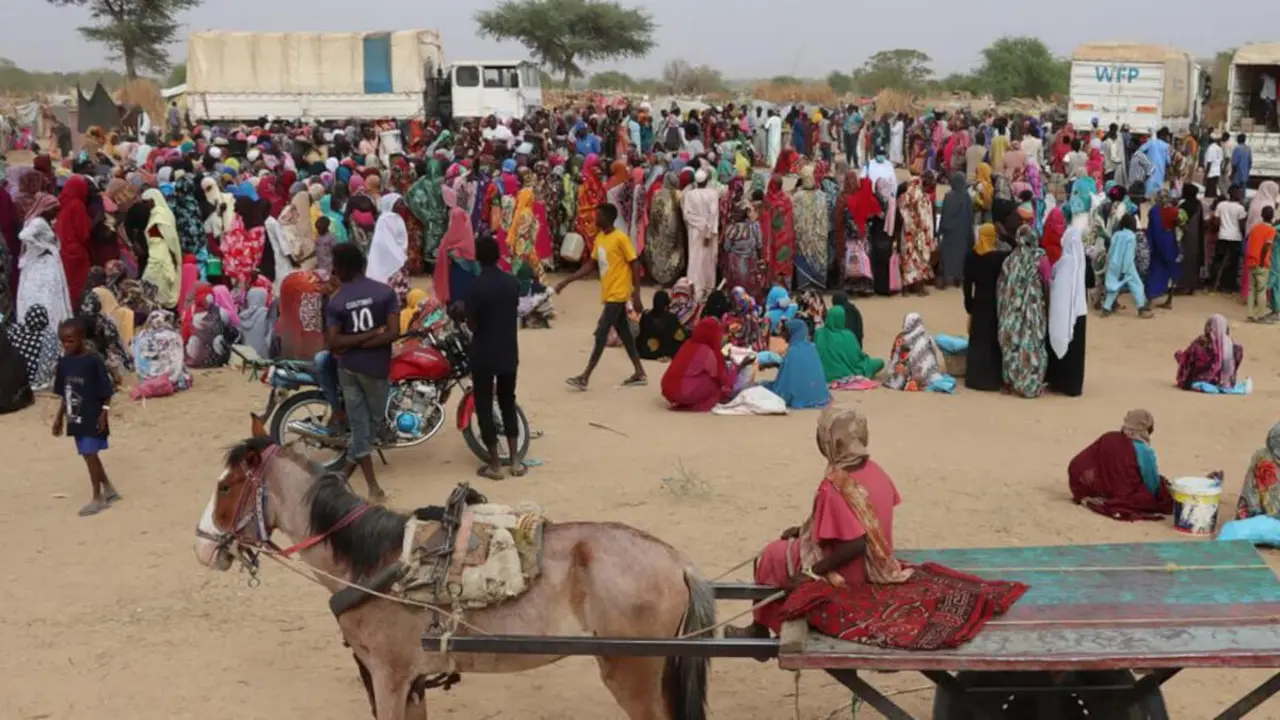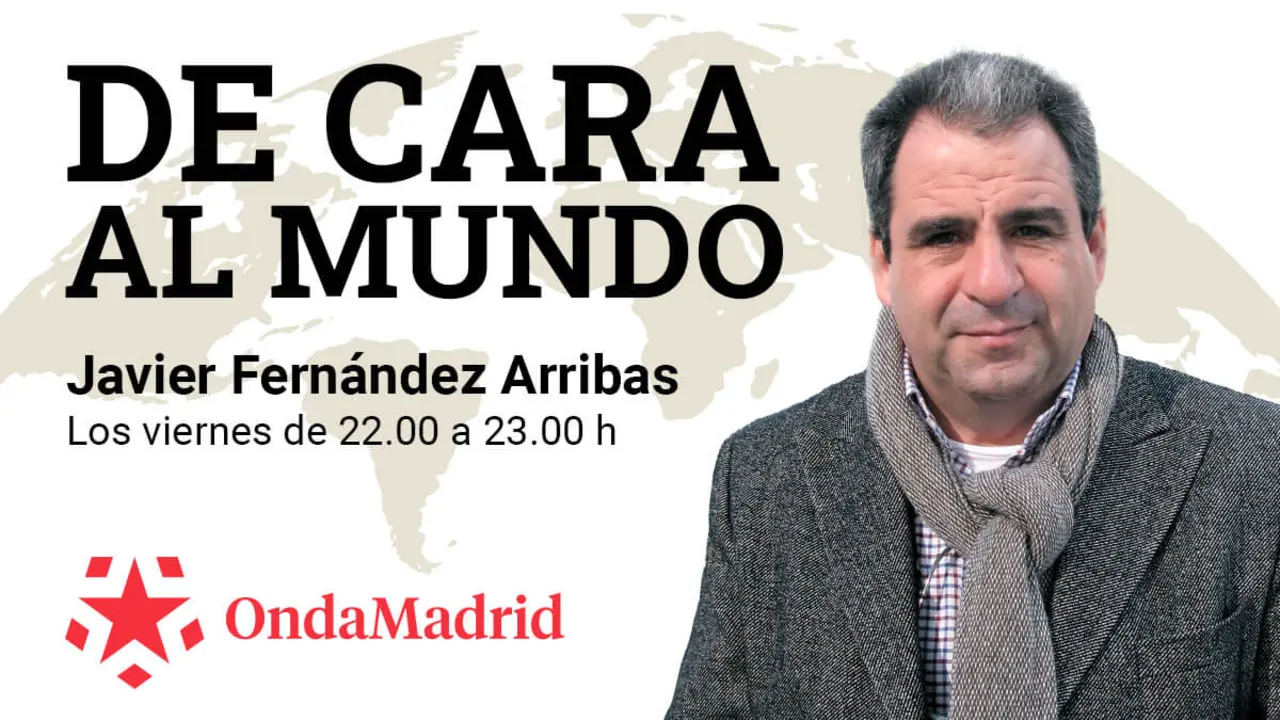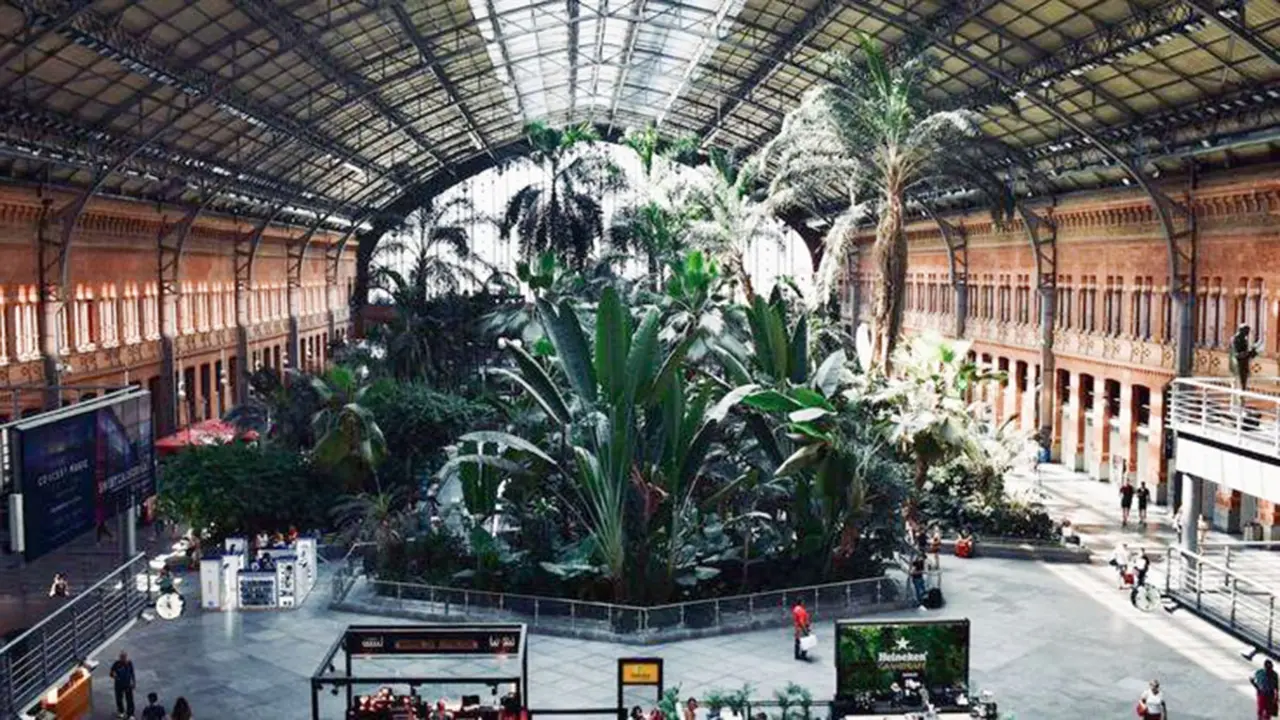Easter in quarantine to escape an epidemic of biblical resonance

According to the biblical book of Exodus, the first of all Passovers - from the Hebrew Pesach, 'passage' - was celebrated on the night God sent the Tenth Plague into Egypt. The Lord killed all the firstborn children who had not painted their doorposts with lamb's blood to allow the liberation of the Hebrew slaves. For thousands of years the Jews have remembered these events as the 15th day of the month of Nissan arrived, just as Christians have celebrated a new Passover since the Council of Nicea in 325 AD around the Resurrection of Jesus Christ. But this year Easter has been celebrated all over the world in the most unexpected way. A Passover that Hebrews and Christians are living confined to their homes to try to outwit the coronavirus epidemic.
Throughout the Hebrew Bible - the Christian Old Testament - plagues were always associated with divine interventions. Epidemics were God's punishment for the sinful behavior of men. In the present times, when the market, the homeland or karma have replaced the old religions, there is no lack of those who see in the epidemic of the COVID-19 a punishment of mother nature to men. Or at least a bitter complaint about their irresponsible behaviour towards the Earth itself and their inability to live in peace and in a cooperative manner. In other words, a wake-up call to bear in mind the precariousness of our condition and the need to seek joint solutions to major world problems.
To add fuel to the fire, some have used a passage from the book of Isaiah (at 26:20, or 26 March 2020?) to remind us that the epidemic was foretold in the Bible: "Go, my people, enter into your chambers and close the doors behind you; hide yourself for a moment until the anger passes. For the Lord comes out of his dwelling place to punish the crimes of the inhabitants of the earth.

But the times have changed and the rabbis no longer trust everything to the will of God. In Israel, the religious leaders accept the measures of containment and admit the "sad fact that communal prayer and penance, a method used by the Jews for millennia in the face of epidemics, is not only ineffective, but is counterproductive," as Elon Gilad wrote in the Haaretz newspaper. The Jewish Passover or Pesach begins with the Seder, a dinner presided over by wine and unleavened bread or 'matzah', which commemorates in its precariousness the night of the exodus.
This year's Passover - which began on April 8th and will continue until next Thursday - is proving to be radically different. The feast of memory, in which Jews of various generations gather and share melodies, memories and food and welcome the stranger, is not happening. "This night is different from all the others," reads a passage from the Mishnah that has become a traditional Seder song. This year, no doubt, it is different from all the others.
The truth is that, as if it were a biblical punishment, the ultra-Orthodox communities of Israel are being punished the most by the epidemic. According to the BBC, between 30 and 50% of confirmed cases of COVID-19 in the State of Israel and 75% of cases in Jerusalem are among members of these communities. The cause of these data is a traditional mistrust of these groups - which represent approximately 12% of the country's population - towards the State and its laws. But it is not only the ultra-Orthodox that are affected by the pathogen: this Sunday, the death of Israel's main ex-rabbi, the Sephardic Eliahu Bakshi-Doron, was reported due to the coronavirus.

The truth is that, in Jerusalem, O Jerusalem, the coronavirus has managed to achieve neither crusades nor wars. In contrast to the multi-colored and polyglot crowd that takes over the streets of the Old City and the surrounding area of Jerusalem during Holy Week, this year silence and solitude have reigned without rivalry in Jerusalem. A group of Franciscans from the Custody of the Holy Land, accompanied by the Apostolic Administrator of the Latin Patriarchate of Jerusalem, Pierbattista Pizaballa, celebrated Palm Sunday prayer from outside the church of Dominus Flevit, on the slopes of the Mount of Olives, under a overcast sky and the skyline of a city like a horror story. It will not be the same," admitted Archbishop Pizzaballa at the beginning of Holy Week, "but it will be an occasion for families to pray together in a new way. The message, prayer and blessing to the thrice-holy city were streamed live by Christian Media Center. The photographs show just four Franciscans making the Way of the Cross, each wearing a mandatory mask, along a deserted Via Dolorosa, shops closed to the public. "It is not a prayer that is done with the lips and the tongue, but walking in the footsteps of Jesus", said Fr. Francesco Patton, Custos of the Holy Land, to the Efe agency at the last station. Perhaps the Nazarene would have liked such a panorama more.

Similar scenes followed one another throughout the week, culminating in the Easter vigil on Saturday and the Easter Mass this Sunday, celebrated without an audience inside the church of the Holy Sepulchre. And in most of those moments, technology was on hand to convey them to the world. Easter 3.0 to outwit the virus.
The truce of the coronavirus has left scenes like that of the Israeli ambulance, the Star of David clearly visible, next to which a Jewish and a Muslim health professional are praying separately, although they are fighting together the battle against a microscopic enemy. Likewise, this year's lockdown will have served, for sure, to temper the spirits among Coptic Christians, Armenian apostles, Greek Orthodox and Catholics, all fraternally confronting each other daily in the custody of the holy places.

Beyond the Holy Land, in the whole of the Catholic world, Holy Week has left unprecedented scenes. In Rome we saw Pope Francis officiating the Palm Sunday prayers in an empty St. Peter's Square. Also the television and the networks showed the pontiff presiding over the Way of the Cross on Good Friday from the same square - and not in the surroundings of the Colosseum, as is usual - under a downpour that made the image more dramatic. The following day, Holy Saturday, it was impressive to see the half-empty interior of St. Peter's Basilica at the Easter Vigil. An image similar to that of the Vatican temple during the Easter Mass and the 'urbi et orbi' blessing.

In that other Rome "triumphant in spirit and greatness", which Cervantes wrote, on the banks of the Guadalquivir, Passion Week left the people of Seville in a state of shock. From Palm Sunday, when the Star of Triana, nicknamed "the brave" - it was the only one of the brotherhoods of Seville that made a station of penance in the upheaval of 1932 - until Easter Sunday, the city has attended resigned to the reality of a blank Holy Week. If for the particular calendar of the Sevillian, Easter Sunday is always a day of nostalgia because it is over until next year, this year the sadness has been double (or triple). The civic-mindedness of Spanish society when it comes to complying with the confinement measures has been widespread and has led to praise from institutions such as the WHO these days.
However, for those who have not complied with the authorities' orders there has been no lack of fines; and that is because man is a sinner, as are priests. In fact, among the anecdotes of these days the police were forced to intervene to suspend a mass celebrated on the terrace of a residential building precisely in the Triana district of Seville and another in the cathedral of Granada itself, neither of which was authorized.

Contrary to what happened on that night of haste when the Jewish slaves of Egypt, commanded by Moses, had to prepare unleavened bread, this Passover and the confinement are proving to be fruitful times for the kitchen. Confectionery recipes - from Spanish torrijas to Israeli jaroset to Easter eggs from many European countries - sweeten our long days of confinement via social networks. In these times of confinement and social alienation, we are more than ever what we eat. May the end of the world catch us eating and cooking.

The year 2020 will go down in history as the year of the viral Easter that we have yet to perceive as capable of marking the passage from the slavery of confinement to the freedom of the street and of embracing and touching our loved ones. And Ramadan - which begins on 23 April - the coronavirus is on its way, with a pandemic in the countries with an Islamic majority whose exact dimensions are still unknown. A relaxation of containment measures during the celebrations of the Muslim holy month will put at risk what has been achieved in recent weeks.
"Suddenly, a disaster on a biblical scale has entered our lives. (...) And the plague has spread throughout the world. Everyone is taking part in this drama. No one is excluded. There is no one whose participation is less intense than that of others. On the one hand, because of the widespread nature of the deaths, the dead we do not know are just a number, they are anonymous, faceless. But on the other hand, when we look at those close to us today, at our loved ones, we feel how much each person is a whole culture, infinite," says writer David Grossman in the pages of Haaretz.
Already on the way to the Octave of Easter and Pentecost, an image that may be the one that best synthesizes what we have experienced these days continues to run strong across the networks. It is signed by the British agency Reuters. Two men with masks on their faces carry on their shoulders a carving of Christ, exhausted and without a cross, through the corridors of what seems to be the premises of Maria S.S. Addolorata Church in the Italian city of Tarento, carrying it up to the terrace of the building, where it presides over the celebration of a Eucharist.

The metaphor is immediate: Jesus Christ suffers like other men and is with those who suffer these days from the coronavirus epidemic. And he rises again. As perhaps all of humanity could consider doing so once it overcomes -with God's help or not- this painful and unexpected epidemic of biblical hues.








